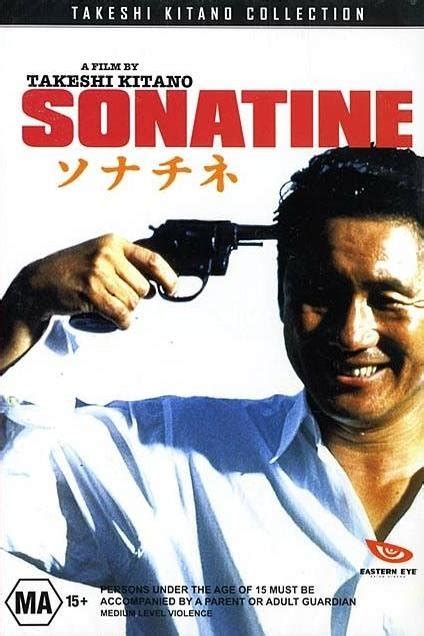Sonatine

Description:
Sonatine is a Japanese film that explores the life of a weary yakuza boss named Murakawa, portrayed by Takeshi Kitano. Disillusioned by his violent lifestyle, he is sent to Okinawa under the guise of mediating a gang conflict. However, the mission turns out to be a setup, leading to unexpected alliances and confrontations. The film delves into themes of existential ennui and the futility of violence, blending deadpan humor with sudden bursts of action.Keywords:
Crime, Drama, Yakuza, Japanese Cinema, ExistentialWhat is a Sonatine?
"Sonatine" is a Japanese film directed by Takeshi Kitano, released in 1993. The term "sonatine" refers to a musical form that is a short sonata, often characterized by its simplicity and expressiveness. In the context of the film, it symbolizes the main character's introspective journey and the fleeting nature of life and violence. The film explores themes of existentialism, the futility of conflict, and the search for meaning within a violent world, blending action with a meditative narrative style.
Is Sonatine a good movie?
"Sonatine," directed by Takeshi Kitano, is widely regarded as a masterpiece in Japanese cinema. The film combines elements of yakuza drama with existential themes, showcasing Kitano's signature style of minimalism and stark violence juxtaposed with moments of tranquility and humor. Its slow pacing and contemplative narrative may not appeal to all viewers, but those who appreciate art-house films often find it profound and thought-provoking. Overall, "Sonatine" is considered a significant work that explores the complexities of life and violence.
What does the name Sonatine mean?
"Sonatine" is a term derived from the French word "sonatina," which refers to a short sonata. In the context of the film directed by Takeshi Kitano, the title reflects themes of simplicity, elegance, and the juxtaposition of beauty and violence. The film follows a group of yakuza who find themselves in a surreal and introspective situation, paralleling the idea of a sonatina as a brief yet impactful musical piece. The title captures the film's artistic and contemplative nature amidst its crime-driven narrative.
Why is it called Sonatine?
"Sonatine," directed by Takeshi Kitano, derives its title from the musical term "sonatina," which refers to a short, light sonata. The film's narrative and structure reflect this concept, as it blends elements of violence and introspection in a seemingly light, episodic manner. The main character, a yakuza hitman, experiences a journey that explores themes of existentialism and the fleeting nature of life, much like a sonatina that combines simplicity with deeper emotional undertones. The title signifies a contrast between surface simplicity and deeper complexity.
Explore More Categories:
Multiculturalism Corporate Conspiracy Mutants Neon San Francisco Bomb Disposal Women S Baseball Doppelg Ngers Continuous Shot Language Live Performance Ohana Minimalism Lepidopterology American Culture Assassins Cybersecurity Explosions Music Connection Ai Dominance Grief Struggle French Film Family Drama School Shooting